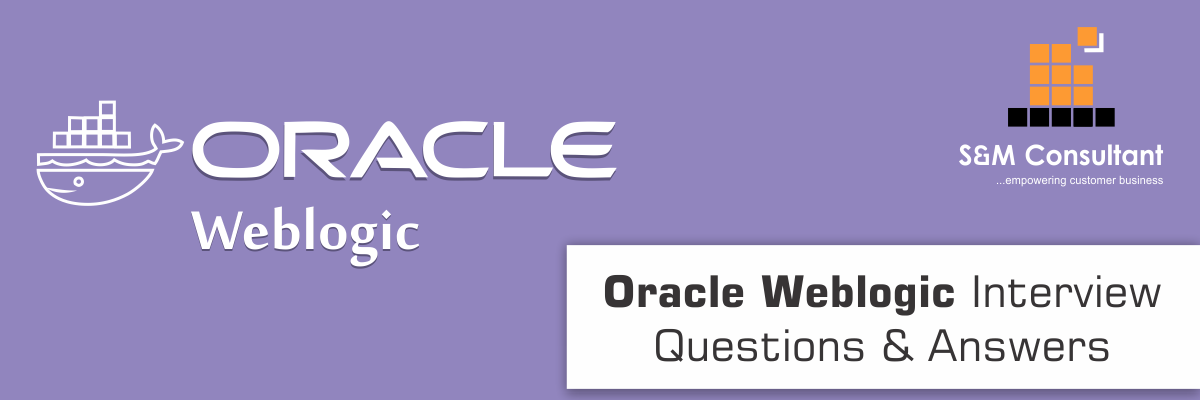Q : What resources can Managed Servers use?
A : Managed Servers can use the following resources:
Machine definitions that identify a particular, physical piece of hardware. A machine definition is used to associate a computer with the Managed Servers it hosts.
Network channels that define default ports, protocols, and protocol settings that a Managed Server uses to communicate with clients. After creating a network channel, you can assign it to any number of Managed Servers and clusters in the domain.
Virtual hosting, which defines a set of host names to which Oracle WebLogic Server instances (servers) or clusters respond. When you use virtual hosting, you use DNS to specify one or more host names that map to the IP address of a server or cluster.
Q : What are Managed Server Clusters?
A : For production environments that require increased application performance, throughput, or high availability, you can configure two or more Managed Servers to operate as a cluster. A cluster is a collection of multiple Oracle WebLogic Server instances running simultaneously and working together to provide increased scalability and reliability.
Q : What Happens if the Administration Server Fails?
A : The failure of an Administration Server does not affect the operation of Managed Servers in the domain but it does prevent you from changing the domain’s configuration. If an Administration Server fails because of a hardware or software failure on its host machine, other server instances on the same machine may be similarly affected. However, the failure of an Administration Server itself does not interrupt the operation of Managed Servers in the domain.
Q : What are the contents of a Domain?
A : The domain in a production environment that contains an Administration Server, three standalone Managed Servers, and a cluster of three Managed Servers.
Q : What is the domain in Weblogic?
A : A domain is an interrelated set of WebLogic Server resources managed as a unit. A domain includes one or more administration servers and managed servers. Various clients use the administration server to configure the system. The managed server is used to run actual applications.
Q : What is the use of cluster in Weblogic?
A : A WebLogic Server cluster consists of multiple WebLogic Server server instances running simultaneously and working together to provide increased scalability and reliability.
Q : What is the use of Nodemanager in Weblogic?
A : Server instances in a WebLogic Server production environment are often distributed across multiple domains, machines, and geographic locations. Node Manager is a WebLogic Server utility that enables you to start, shut down, and restart Administration Server and Managed Server instances from a remote location.
Q : What is an admin server in WebLogic?
A : A domain is a logically related group of WebLogic Server resources that you manage as a unit. A domain always includes only one instance of WebLogic Server called the Administration Server. A domain may also include additional WebLogic Server instances called Managed Servers.
Q : What is WebLogic and what does it do?
A : WebLogic server is based on Java 2 Platform, Enterprise Edition (J2EE), the standard platform used to create Java-based multi-tier enterprise applications. J2EE platform technologies were developed through the efforts of BEA Systems and other vendors in collaboration with the main developer, Sun Microsystems.
Q : Is WebLogic Web server?
A : In order to run EJB or host enterprise Java application (.ear) file you need an application server like JBoss, WebLogic, WebSphere or Glassfish, while you can still run your servlet and JSP or java web application (.war) file inside any web server like Tomcat or Jetty.
Q : What are Resources and Services?
A : In addition to the Administration Server and Managed Servers, a domain also contains the resources and services that Managed Servers and deployed applications require.
Q : What are Managed Servers?
A : Managed Servers host business applications, application components, Web services, and their associated resources. To optimize performance, Managed Servers maintain a read-only copy of the domain’s configuration document. When a Managed Server starts up, it connects to the domain’s Administration Server to synchronize its configuration document with the document that the Administration Server maintains.
Q : What is Administration Server?
A : The Administration Server operates as the central control entity for the configuration of the entire domain. It maintains the domain’s configuration documents and distributes changes in the configuration documents to Managed Servers. You can also use the Administration Server as a central location from which to monitor all resources in a domain.
Q : What is the use of domain in Weblogic Server?
A : Domains include a special Oracle WebLogic Server instance called the Administration Server, which is the central point from which you configure and manage all resources in the domain. Usually, you configure a domain to include additional Oracle WebLogic Server instances called Managed Servers.
Q : What is the use of Nodemanager in Weblogic?
A : Node Manager is a Java utility that runs as separate process from WebLogic Server and allows you to perform common operations tasks for a Managed Server, regardless of its location with respect to its Administration Server.
